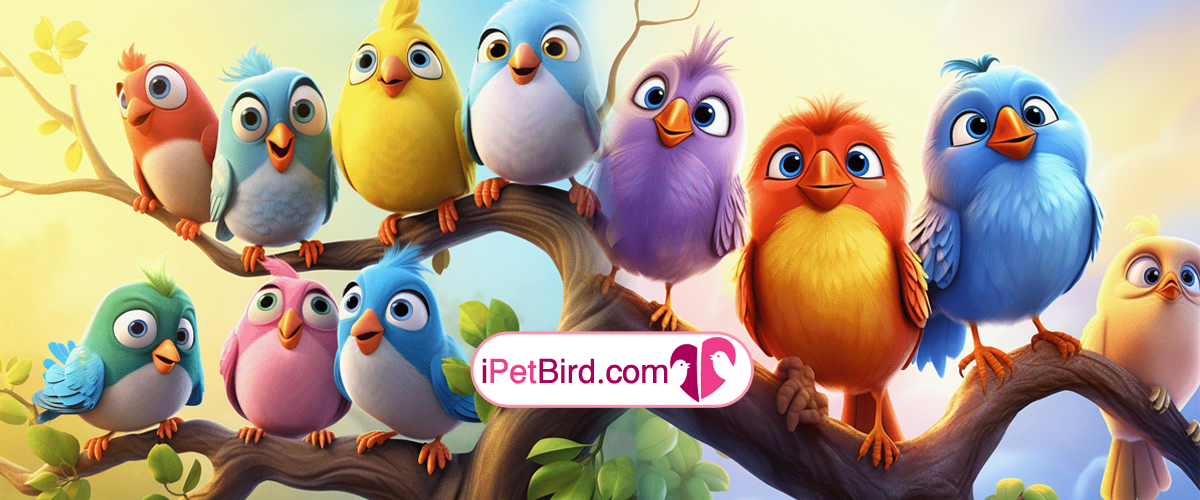Perilla Seeds: Their Benefits And Harms To Birds. Learn About Them

What are perilla seeds?
It is an oily grain that is very similar to millet. It is characterized by its light brown color and spherical shape. It is usually provided to birds throughout the year, but the quantity varies according to the type of bird and its health condition.
It is recommended to provide a small amount the size of a teaspoon, mixed with the rest of its food, once a week to an adult bird to maintain the vitality of its immune system.
And twice a week during the mating season because it contains fatty acids such as Omega 3, which are beneficial for fertility.
It is also characterized by being soft and easy to break grains, as it contains healthy fats that represent 50% of its weight.
Its benefits
- It is considered a strong antibacterial in general, so it helps reduce food poisoning in birds, in addition to using it as a natural antibiotic instead of a chemical one.
- Because it contains many beneficial nutrients that the body cannot produce, it is also important for its growth and protection from diseases. The most important of these elements are:
- Omega 3, 6, 9.
- Magnesium.
- zinc.
- copper.
- iron.
- Phosphorous.
- Vitamin E.
- And many other compounds, such as 25% carbohydrates and 18% proteins, which help strengthen the bird’s immune system.
- It can be given to adult birds as a separate food to treat them in the event of their illness, especially in the case of “the bird’s death,” as it helps it regain its vitality and activity.
- “Bird starvation” is a disease that affects the bird as a result of a lack of diversification in the diet, resulting in weakness in the chest area, atrophy of its muscles, and permanent lethargy.
- Which leads to the appearance of the bone in the middle of the chest area, which looks very similar to a sword, hence the name of the disease: bird swording.
- These seeds are also considered important in the bird’s early stages of growth, which last for 4 months, as they stimulate the appetite and help it build its body and increase its immunity.
When does it become harmful?
Caution must be taken when offering it on an ongoing basis to adult birds that are in good health and do not suffer from any weakness or disease, because it contains a high percentage of fat, which in turn leads to the bird becoming obese (obesity).
It is not prohibited, but it must be provided in small quantities at frequent intervals, and it is recommended to provide it in abundance only when the bird is sick to speed up the process of its recovery and regain its strength.
What kind of birds are they served to?
It is served to ornamental birds of all kinds, such as: budgies, zebras, canaries, and goldfinches, as they are among the foods that you must have when raising birds.
Read also: How Do You Choose The Ornamental Birds That Are Right For You?
Other useful types of seeds that can be offered to birds
These are grains that are mixed together in different proportions to form a complete nutritional meal that benefits the bird and helps it grow, including:
- Flax seeds contain compounds and acids that help grow healthy and soft feathers, in addition to being beneficial for the respiratory system.
- Oat grains are considered an ideal food as they help the bird in growth, increase fertility, early birding, and reduce cholesterol levels. They are also beneficial for the digestive system.
- Thistle seeds are the goldfinch’s favorite seeds, as they increase its activity and strengthen its immune system.
- Indian hemp seeds contain many vitamins that increase the bird’s fertility and benefit its digestive system.
- Canary seeds are characterized by a high percentage of crude protein and lipase enzyme, which works to enhance the functions of the digestive system and expel toxins from the body.
- Niger beans are easy to break and contain a high percentage of oils, so it is preferable to reduce them and serve them during mating periods and when birds are sick.
- Rapeseed is considered a general tonic for the body and an antidote to respiratory diseases such as colds and pneumonia.
- Radish seeds contain the hormone estrogen, which is beneficial for female ovulation. It also helps songbirds purify their voice and raise its level of sweetness.
- Sunflower seeds are considered a powerful sexual stimulant for birds because they contain phosphorus, iron, and selenium.
Summary
Perilla grains are beneficial for any bird, as they are considered a natural antibiotic and a general tonic for the body, but the variety of grains provided to the bird must be taken into account in order to build a strong, disease-free body.
Therefore, it is preferable to provide it continuously to young birds and adult birds that suffer from diseases and delirium.
Be careful not to offer it to adult birds that are in good health, by offering it once a week with the seed mixture provided to them.
Read also: Why Do Geese Stay With Their Life Partners Throughout Their Lives?

















